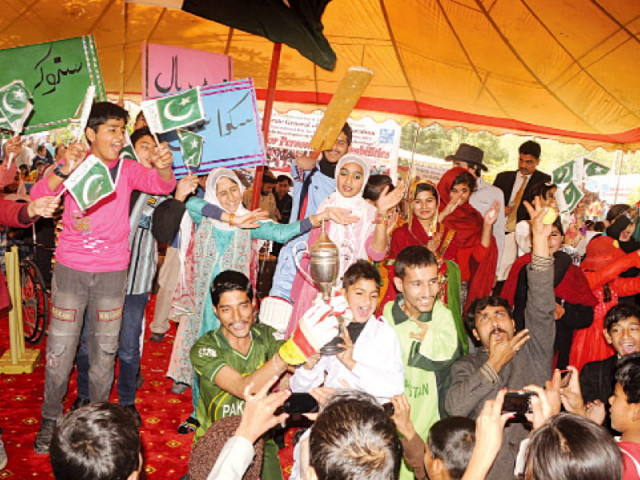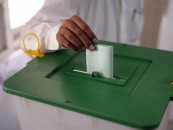Not a priority: ‘Poor’ government leaves disabled with only NGOs to lean on
Lack of funds leaves PWDs with little support structure, assistance in regaining independence.

Talking to The Express Tribune, a senior Directorate General of Special Education official said on condition of anonymity that after the devolution of the Ministry Of Social Welfare And Special Education under the 18th Amendment, the federal government lacks funds to run the programmes initiated for the welfare of people with disabilities (PWD).
“At present, there are a few NGOs working for the welfare of PWDs, but their services are limited to certain areas and the programmes are mostly short-term,” said the official.
Moreover, Pakistan is lagging far behind in fulfilling its international commitments, he added.
It is a fact that NGOs alone cannot fulfill the role of the government. Even they need state support to provide the right environment for PWDs, the official insisted.
Meanwhile, Minister of the State for the Capital Administration and Development Division Barrister Usman Ibrahim said that the government is fully-aware of the issues facing PWDs, while admitting that it has been unable to fulfill its responsibilities to provide them with a ‘barrier-free environment’.
He said this while addressing participants of a policy dialogue titled ‘Road Map for Justice and Equality for Persons with Disability (PWD)’, held on Wednesday at Fatima Jinnah Park. The event was organised by Aurat Foundation in collaboration with the Directorate General of Special Education to mark International Day of Persons with Disabilities.
Ibrahim stressed that a lot is needed to be done for PWDs, starting with drafting comprehensive legislation to ensure that their rights were preserved.
He reiterated his demand that the Pakistan Baitul Mal (PBM) managing director (MD) relinquish control of three rooms in a shared building so that CADD can establish a centre for autistic children in them.
PBM Managing Director Barrister Abid Waheed Sheikh stressed that Pakistan presently lacks updated data on PWDs, which is a major hurdle in formulating a policy to address their issues.
He announced that PBM, in collaboration with the World Health Organisation (WHO), is planning to carry out a census to determine the number of PWDs in the country and the kinds of disabilities they have.
Mohammad Jawad Afzal, a deputy director at the Directorate General of Special Education, gave a presentation in which he shared that out of the total population of 180 million, around four to eight million people were disabled. He added that 45 per cent of them were under the age of 18. “At least three million adults, both male and female, need rehabilitation through some kind of employment,” he said.
“A majority of PWDs belongs to the poor strata of society and their families require extra money for their well-being,” he said.
Because of the lack of job opportunities and accessibility issues, these PWDs are treated as a burden on their families, he said. Aurat Foundation Coordination Director Prof Farkhanda Aurangzeb suggested that all political parties should include PWDs as this would eventually give them a platform to raise their issues.
She also expressed concern over the absence of clear legislation at the national level for the rights of PWDs.
Grassroots failing
As long speeches over welfare continued a few metres away, Fazal Ghani, 28, an attendee at the fun fair, summed up the problems in a few short sentences. Paralysed since the age of four, Ghani simply said, “My disability became a hurdle. It stopped me from fulfilling my dreams. It was because of my disability that I could not get an education. Now I can’t get a job.”
Published in The Express Tribune, December 4th, 2014.



















COMMENTS
Comments are moderated and generally will be posted if they are on-topic and not abusive.
For more information, please see our Comments FAQ